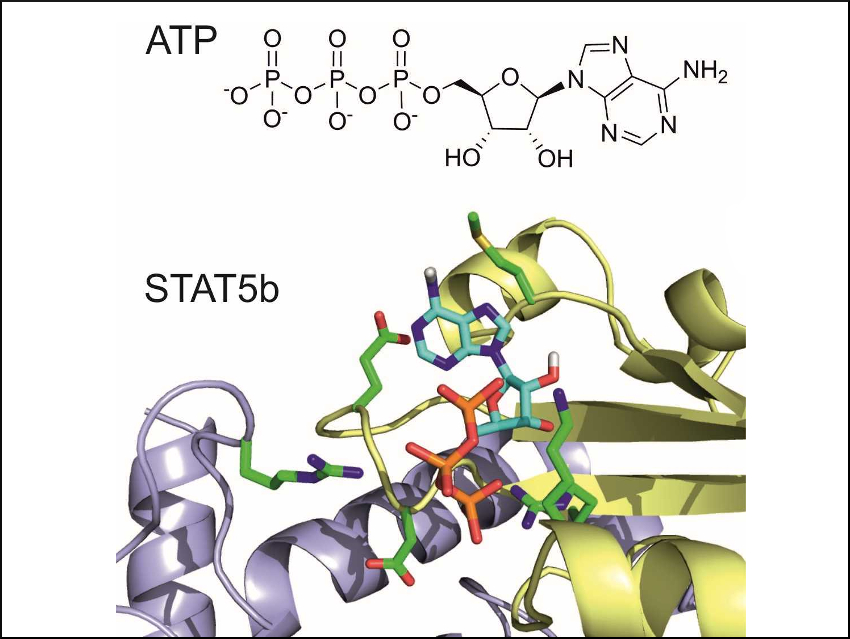Adenosine triphosphate (ATP, pictured) acts as the “fuel” in living cells that powers many energy-consuming processes. During these processes, it is converted to either adenosine diphosphate (ADP) or to adenosine monophosphate (AMP). However, even such a well-studied molecule as ATP can have as yet unrecognized abilities.
Thorsten Berg, Leipzig University, Germany, and colleagues have discovered that ATP and other nucleoside triphosphates inhibit a particular domain (Src Homology 2 or SH2) of the transcription factor STAT5b (Signal Transducer and Activator of Transcription 5b). STAT5b is active in multiple human cancers. The team found this effect during a high-throughput screening of over 1900 biologically active compounds and neurotransmitters using a fluorescence polarization-based binding assay. The observed inhibition of STAT5b by ATP is specific over other STAT protein family members, including the very similar STAT5a.
The inhibition constant of ATP against STAT5b is approximately 25 times lower than the average ATP concentration within cells. This suggests that this activity may be relevant in living cells. Since ATP levels in tumor cells are higher than those in non-transformed cells, the inhibition of STAT5b by ATP might provide a cellular safety mechanism against cancer-causing genes.
- ATP inhibits the transcription factor STAT5b,
Angela Berg, Bianca Sperl, Thorsten Berg,
ChemBioChem 2019.
https://doi.org/10.1002/cbic.201900173




